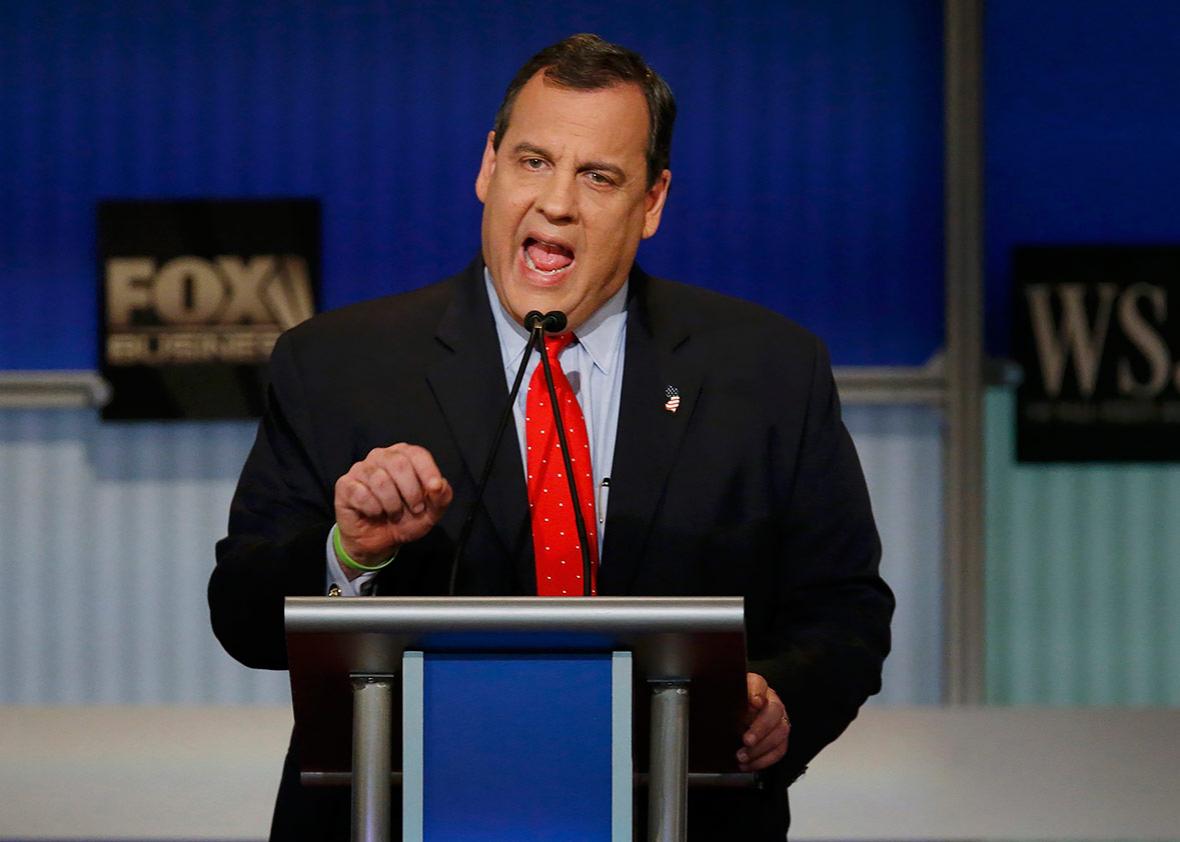After being knocked from the main stage for slipping in the national polls, Chris Christie found a bit of his footing in the Fox Business Network’s opening debate on Tuesday. The New Jersey governor turned in the strongest performance of the four men on stage by getting off a few decent one-liners while largely trying to act like a man who didn’t belong on the undercard. Christie ignored a string of attacks from Bobby Jindal, a clear sign to everyone in the theater that Jindal saw him as the biggest fish on the stage and he didn’t see Jindal at all.
It was a solid, if unspectacular performance. But don’t expect it to earn Christie a return to the big leagues. That likely failure, though, is less a product of what Christie said and did on Tuesday and more the cold reality of a two-tiered debate system that has outlived its usefulness.
A quick trip down JV memory lane:
Carly Fiorina dominated the first undercard debate in August, a showing that helped push her into the GOP’s top tier and secure her a spot on the main stage at the following debate. With the novelty of the format gone, though, neither of the two debates that followed offered a second golden ticket. Lindsey Graham was generally considered to have been the strongest performer in the second undercard—though not nearly as strong as Fiorina had been in the first—but never saw the same post-debate bump. The senator from South Carolina had reached 1 percent in two of the 10 major polls that preceded that debate; he managed to hit that mark in three of the 10 that followed. Graham was again the closest thing there was to a winner on CNBC’s undercard stage. His reward for another strong showing: Failing to qualify for the Fox Business debates altogether. (Fellow debate understudy George Pataki, the former governor of New York, was also shut out.)
There’s no reason to suspect Christie will be more Carly than Graham. The New Jersey governor was also one of the stronger performers in the three primetime debates—though that didn’t seem to impress the conservative constituency he needed to woo. He has continued to slip in the national polls ever since the first GOP debate, and has likewise failed to make any headway in New Hampshire, which was always going to be his best chance at a win in an early nominating state. Things aren’t much better in his home state: A new poll out Tuesday shows him running a distant fourth in the Garden State. A full 40 percent of New Jersey Republicans—and a majority of all voters in the state—meanwhile want him to throw in the towel. His performance in Tuesday’s debate should do absolutely nothing to change that.
The current system of dividing up the debate into two tiers is imperfect at best and unfair at worst. But unless the networks go back to the drawing board—which is unlikely at this point in time—it’s time they pull the plug on a warm-up act that once served a purpose but that has since become a sideshow that is largely ignored.
